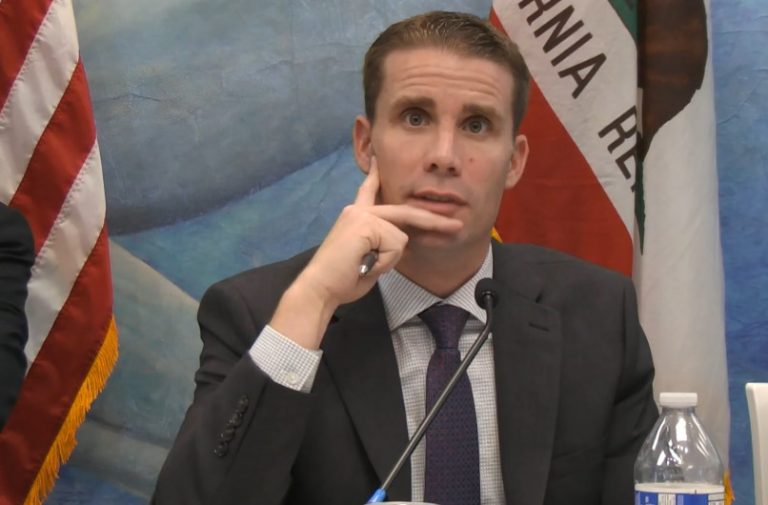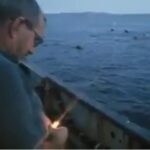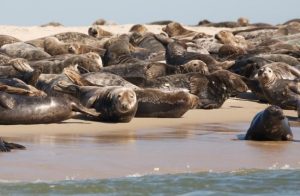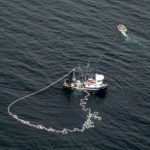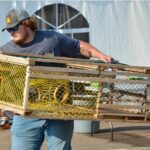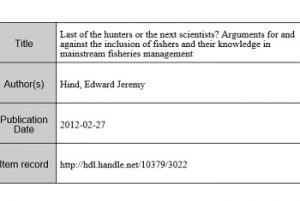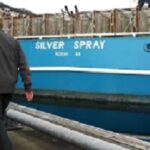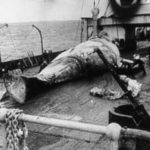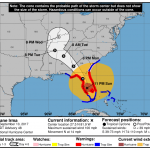Tag Archives: National Marine Fisheries Service
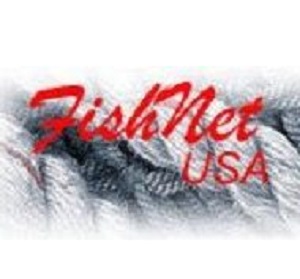
Offshore Wind Farms : We’re from the government and we’re here to _______ you!
It is just another example of the commercial fishing industry being “thrown under the bus” for the benefit of more politically powerful interests-in this case the wind energy industry and the political support that has been generated by it. But then again, perhaps not. Gina McCarthy, described as the Biden Administration’s “Climate Czar” (actually the first-ever climate advisor) “said the administration already took those complaints.” These are the comments RODA and various other folks and organizations made on the COP which were never addressed. “McCarthy said offshore wind is emerging as an even more important linchpin of the Biden administration’s clean energy strategy than had originally been expected. There are about 16 projects currently in the pipeline,,, >click to read< 15:52

Biological Opinion to Protect Right Whales Met With Opposition on All Sides
The National Marine Fisheries Service (NMFS) released a key report called a Biological Opinion yesterday that calls for a 98 percent reduction in risk to North Atlantic right whales over the next 10 years. The goal is meant to be achieved over the course of four phases that correspond with increasingly tight restrictions on lobster and crab fisheries as well as other fixed-gear fisheries that use vertical buoy ropes. Vertical ropes attached to trap/pot gear is known to lethally entangle the whales. >click to read< 16:38

Richard “Max” Strahan attempted to intervene in right whale case with court injunction
An animal rights activist made a late attempt to try and stop the industry from being allowed to use vertical buoy ropes. Richard “Max” Strahan tried to intervene at the beginning of the month in the federal right whale court case that holds the future of the lobster industry in its hands, but the activist’s attempt was rejected by a judge less than a week later. Strahan filed his motion on May 8 and claimed that the only way the industry would stop using the ropes is by a court-ordered injunction. >click to read< 16:03
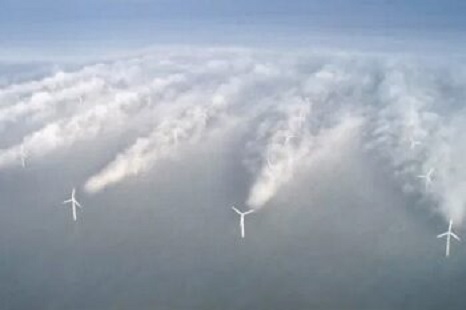
Commercial fishermen being ignored on wind farm projects
For the past three decades, Town Dock fishermen and their counterparts across the Northeast have struggled to stay afloat in the face of strict regulations designed to rebuild depleted stocks of cod, flounder and other species. But now that many of the species have rebounded and government regulators are increasing the amounts of fish they can land, the fishermen face a new threat: offshore wind farms. Longtime Town Dock fisherman Bob Guzzo said the federal government is giving away land that fishermen have used to feed people for more than 300 years. “I’d like to pass this on to someone else who wants to go fishing,” he said. >click to read< 18:54
This comment is excellent-Seems like we can add to the list of lies from big wind, if anyone is keeping score. I would doubt it, their whole industry is based on lies!
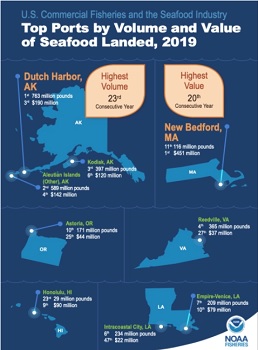
New Bedford is America’s number 1 fishing port for 20th straight year
The National Marine Fisheries Service released its annual report on the health of the nation’s fishing industry on Thursday,,, New Bedford ranked No. 1 for the value of seafood landed at its port for the 20th consecutive year in 2019, with $451 million worth of fish hauled in by its boats. That was up by $20 million compared with the year before, and far outpaced the second-ranked Port of Naknek, Alaska, which had $289 million worth of landings. NOAA officials said New Bedford’s dominance remains driven by sea scallops, which account for 84% of the value of all landings there. >click to read< 14:21

‘Tragedy of the Commons’ Will be the Fate of Marine Environment in Atlantic Offshore Wind Farms
Like the English commons, the Atlantic waters could take just so much ‘grazing’. The Canadian government finally recognized the cod fishery had crashed and closed it;,, Recognizing that fish could not be owned until they were caught, government regulators attempted to at least partially privatize fishing rights. So too, the waters in which they swim (Hague Line dividing CN and US waters in the Gulf of Maine and on Georges Bank.) It was that bottom and those waters that wind farm builders wanted “rights”.,,, So, the question arises “why don’t the fishing interests move to protect these sensitive marine habitats?” They have tried without much success. >click to read< 18:43
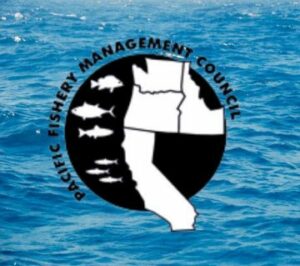
PFMC sets 2021 West Coast ocean salmon season dates
“There will be some restrictive commercial and recreational seasons this year along much of the coast,” said Council Chair Marc Gorelnik. “Forecasts for some Chinook and coho stocks are quite low, which made our job more challenging this year.” The council heard reports from commercial, recreational, and tribal representatives on the challenges caused by the COVID-19 pandemic, as well as ways the council could provide meaningful fishing opportunities and economic support for coastal communities. >click to read< 16:37
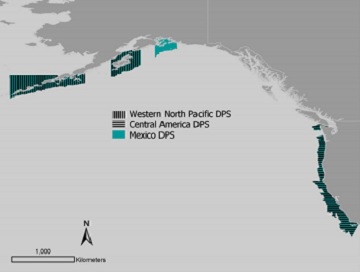
National Marine Fisheries Service designates critical whale habitat areas in Alaska and the West Coast
The National Marine Fisheries Service Wednesday published a final rule designating critical habitat for three populations of humpback whales including some areas in Alaska. The federal ruling affects the eastern Aleutians, Kodiak, Prince Williams Sound, as well as the coastlines of Washington, Oregon, and California. The rule establishes about 116,000 square nautical miles of protected area for the endangered Western North Pacific and Central American populations of humpback whales and the threatened Mexico population. >click to read< 09:14

Births rates up among North Atlantic Right Whales
North Atlantic right whales gave birth over the winter in greater numbers than scientists have seen since 2015, an encouraging sign for researchers who became alarmed three years ago when the critically endangered species produced no known offspring at all. Survey teams spotted 17 newborn right whale calves swimming with their mothers offshore between Florida and North Carolina from December through March. One of those calves soon died after being hit a boat, a reminder of the high death rate for right whales that experts fear is outpacing births. >click to read< 08:58
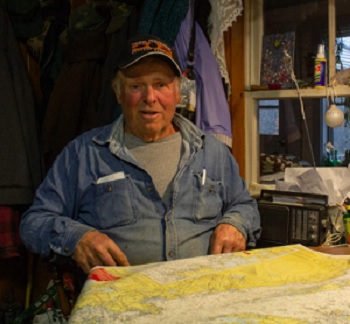
Fishermen, DMR: New North Atlantic Right Whale regulations could cripple lobster industry
The proposal, released in late December 2020, includes measures like regional gear marking, breakaway rope, extra traps per trawl line and restrictions on certain fishing areas. But it is the emphasis placed on ropeless fishing traps that has officials at the Maine Department of Marine Resources most concerned. In its Biological Opinion regarding right whales and the fishing industry, NMFS identifies ropeless fishing as a solution, among others, to reduce whale entanglements that cause death or serious injury. DMR argues that ropeless gear is largely under-researched and unaffordable. DMR used EdgeTech traps to estimate cost increases associated with converting to ropeless fishing,,, An EdgeTech fishing unit costs $3,750, >click to read< 19:36
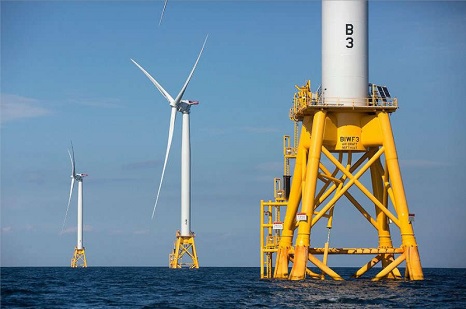
Pile driving for constructing offshore wind turbine supports alters feeding behaviors of longfin squid
With the offshore wind industry expanding in the United States and elsewhere, a new study raises questions about how the noise from impact pile driving to install turbine supports can affect feeding behaviors of longfin squid, a commercially and ecologically important cephalopod.,, The study addressed short-term impacts to squid feeding behavior and noted that future research should look at longer exposures to noise and field work with 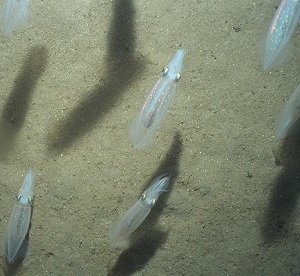 free-swimming squid. In particular, the study found that rates of anti-predator behaviors were similar when subjected to recordings of piledriving whether the squid was hunting at the start of the noise, suggesting that the noise diverted squid attention from a feeding task toward predator defense. >click to read< 14:13
free-swimming squid. In particular, the study found that rates of anti-predator behaviors were similar when subjected to recordings of piledriving whether the squid was hunting at the start of the noise, suggesting that the noise diverted squid attention from a feeding task toward predator defense. >click to read< 14:13
‘Irreversible losses’: Wildlife expert fears for North Sea habitat – The North Sea off Suffolk could be facing “irreversible wildlife losses” because of the impact on its environment of the growing number of windfarms. >click to read<
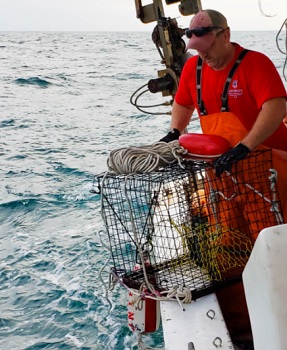
Ropeless fishing gear: Georgia researchers work with commercial fishermen to test equipment
NOAA has identified two areas critical for right whales: off the coast of New England, where the whales forage for food in warmer months; and off the southeast coast from North Carolina to Florida, where the whales reproduce between November and April. Fluech is collaborating with Kim Sawicki, project lead and doctoral student at the University of Massachusetts,, In summer 2020, the research team secured a permit from the National Marine Fisheries Service to test eight different ropeless gear systems with black sea bass pots off the coast of Georgia. It was the first time the ropeless gear had been tested in the South Atlantic. >click to read< 08:37

Richard “Max” Strahan ‘Man in Final Legal Effort to Protect Whales
Strahan seeks a court order to prevent the state from licensing vertical buoy ropes and to make Massachusetts revoke all existing licenses. The ropes connect traps and pots under water to buoys on the surface so lobstermen can more easily find their catch.,,, Strahan distinctly remembers his first case, Strahan v. Coxe, which he frequently cites. The U.S. District Court for the District of Massachusetts said in that 1996 opinion that gillnets and lobster gear have harmed endangered whales “and are likely to continue doing so.”(But he never mentioned ship strikes!) >click to read< 10:12
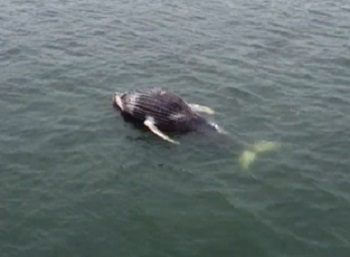
Enviros sue for North Atlantic Right Whale protections from ship strikes
Four conservation groups filed an injunction in a Washington, D.C., court last week asking the National Marine Fisheries Service to expand its efforts to protect right whales and their calves from being hit by ships. Although entanglement in fishing lines gets a lot of headlines, ship strikes have emerged as a prime killer of the right whales, whose numbers have dropped from a peak of 481 in 2011 to 356 this year. Eleven calves, including two that were spotted Wednesday off Amelia Island, Florida, so far this calving season are not accounted for in that estimate. >click to read< 09:50

Shortsighted Petition about whale regulations in Mass draws response from Maine
Enviro groups have filed a petition with the NMFS seeking immediate emergency action requiring the commercial fishing industry to protect endangered right whales from entanglement off the coast of Massachusetts. Members of Maine’s Congressional delegation responded in opposition to that petition with a letter to the Department of Commerce, calling it shortsighted. The petition suggests ropeless fishing could be used, and even though it targets Massachusetts, Maine’s commercial fishing industry is watching, according to Mike Dassatt, who is on the board of the Downeast Lobsterman’s Association,, “We need to be supporting Massachusetts because here in Maine, it would put way too many people out of business,”,, >click to read< 07:15

Massachusetts Lobstermen Raise Concerns Over Proposed Whale Regulations
At a public hearing on Tuesday, the Massachusetts Department of Marine Fisheries (DMF) shared its recommendations to extend a seasonal commercial gear closure to areas north and east of the Cape from February 1 through April 30. “I’m just trying to plan for the future of fisheries. I mean, if we have a closure this will really close down the state to any type of income,” said Mike Lane, a fisherman who asked whether the state would require modifications to other kinds of fishing gear. Officials were unable to provide an economic impact report based on these recommendations,,, (someone that was there said there was a lot of ropeless chatter) >click to read< 07:30
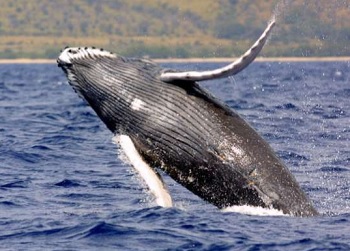
California crabbing rules a concern says North Coast fisherman
Local crab fisherman Mike Cunningham said he’s spoken with fishermen across the West Coast who take issue with the new rules. “We always look to avoid entanglements with whales,” Cunningham said. “The biggest problem (with the new rules) is that they are talking about closing massive areas to fishing. You could have an entanglement problem near Monterey, and the director (of Fish and Wildlife) could close the waters from Monterey up past Humboldt.” There are six fishing zones along the state’s coast. “The director now has the authority to do anything at any time,” Cunningham said. “Now, sometimes, it may just be a fleet advisory or warning, but it could go all the way to closing the entire coast to crab fishing.” The new rules stem from a lawsuit filed against the state by the Center for Biological Diversity, settled in 2019, >click to read< 19:48
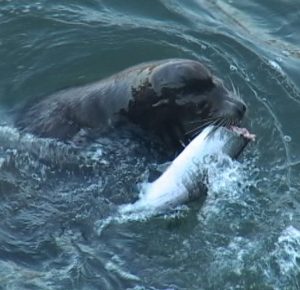
Sea lions take big bite out of early salmon runs
Early runs of wild spring Chinook salmon returning to the Columbia River are bearing the brunt of sea lion attacks, a new study suggests. The fish arrive in early spring before sea lions have left for summer breeding grounds and when the pinniped population is especially high at the river’s mouth. These salmon see higher mortality rates compared to later runs and the numbers have started to climb even over prior years, corresponding with a growing number of sea lions recorded near Astoria. >click to read< 08:56
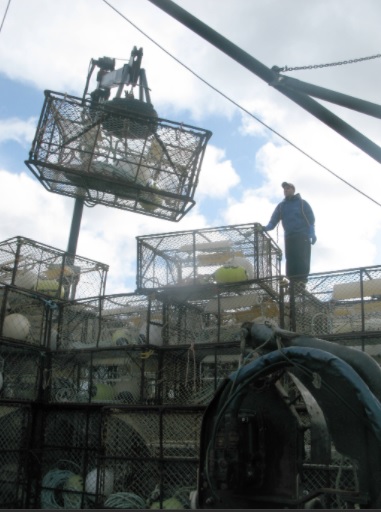
Bering Sea Crab harvests set: Kings still in decline, snow and Tanner see bump
Commercial fishermen will be allowed to harvest a total of 45 million pounds of snow crab from the Bering Sea waters this year, with 4.5 million of that set aside for Community Development Quota groups and the rest for individual fishing quota, or IFQ, holders. That’s about 34 percent larger than the limit last season, which was also an increase over the previous year. Bering Sea Crabbers Association Executive Director Jamie Goen said that’s good news for the fleet. However, members of the fleet also think that TAC could have been a lot higher had the National Marine Fisheries Service been able to conduct its regular surveys. >click to read< 08:29
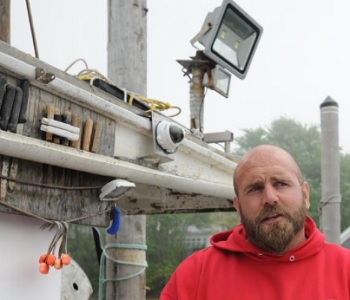
Electronic monitoring long-awaited boon for Cape Cod fishermen
Cape fishermen first started advocating for the use of electronic monitoring in 2006, said Melissa Sanderson, chief operating officer of the Cape Cod Commercial Fishermen’s Alliance. “I would say it’s a long time coming,” said Sanderson of the 14 years it took to finally have approval. But six years ago, Maine fishermen revived interest with their own pilot program and Cape fishermen joined the following year using equipment and technical support provided by The Nature Conservancy and grants from the National Fish and Wildlife Foundation. >click to read< 09:09
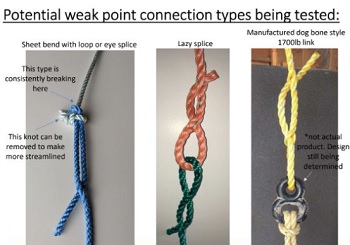
Recommended gear rules for Right Whale safety are adopted
With the National Oceanic Administration’s National Marine Fisheries Service (NMFS) under a fast approaching, court-imposed deadline to develop new whale protection rules, the Zone C Lobster Management Council held a special meeting last week to get an update on the situation from Department of Marine Resources Commissioner Patrick Keliher. The meeting was also an opportunity to consider a zone-specific plan for gear modifications that will likely be required by NMFS. As with many things occurring during the ongoing coronavirus pandemic, the meeting took place in cyberspace. >click to read< 14:43
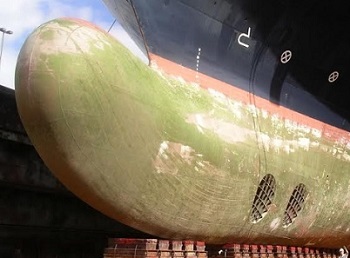
The Judge has ruled! NMFS must list the North Atlantic Right Whale entanglement facts on paper. Case Closed!
Judge Boasberg has ruled! A new accurate ESA analysis has been ordered by next June. The National Marine Fisheries Service just needs to put the lobster entanglement facts on paper and it’s “Case Closed” Not only was there an unusual mortality event in the Gulf of St Lawrence. The Right Whales stopped reproducing. Basically the whales moved up into the South West Gulf of Saint Lawrence in 2015 and took the crab fishermen by surprise and also they set up feeding on copious copepods at the mouth of the St Lawrence River where the Spring flood of nutrients kicks off phytoplankton blooms. Unfortunately this is directly under a shipping lane used solely by cruise ships who traveled at night starting at the end of April.,, by Jim O’Connell, >click to read< 20:26

Federal judge gives NOAA time to craft new whale rules
A federal district court judge, in a decision issued late on Wednesday, Aug. 19, gave the National Oceanic and Atmospheric Administration’s National Marine Fisheries Service (NMFS) nine more months to craft new rules to protect endangered right whales from entanglement in lobster fishing gear. Judge James E. Boasberg also denied a request by conservation organizations for an immediate ban on lobster fishing in a vast area of the ocean south of Nantucket Island in Massachusetts. >click to read< 09:45
Dear Mr. Pentony and Dr. Hare: On behalf of the MAFMC I am writing to express our deep concern about the plan to redeploy observers
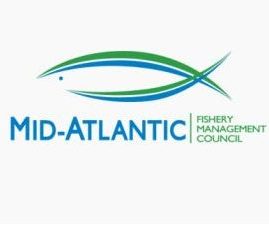 On behalf of the Mid-Atlantic Fishery Management Council, I am writing to express our deep concern about the plan to redeploy observers on vessels in the Greater Atlantic Region on August 14, 2020. Given the continued transmission of the COVID-19 virus, we do not believe the observer program can be safely operated at this time. >click to read< 14:49
On behalf of the Mid-Atlantic Fishery Management Council, I am writing to express our deep concern about the plan to redeploy observers on vessels in the Greater Atlantic Region on August 14, 2020. Given the continued transmission of the COVID-19 virus, we do not believe the observer program can be safely operated at this time. >click to read< 14:49
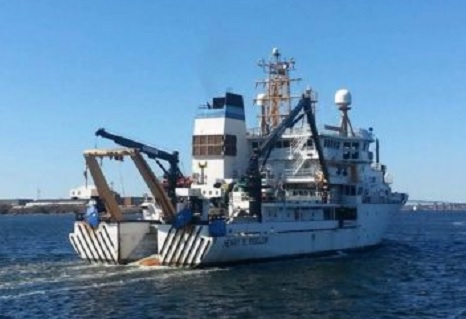
Coronavirus: COVID-19 and mandated on-board fisheries observers during the pandemic resurgence
The NOAA/NMFS “Navy’s” at-sea surveys in the Northeast region were cancelled at the beginning of the COVID-19 pandemic and will not be resumed for at least the remainder of this year. “Since March, we have been rigorously analyzing various options for conducting cruises this year and are taking a  survey-by-survey, risk-based approach. After much deliberation, we determined that there was no way to move forward with these surveys while effectively minimizing risk and meeting core survey objectives,” according to officials at the Northeast Fisheries Science Center in a statement issued July 10.,,, But mandatory on-board observers pose no COVID 19 threat to commercial captains or crew?,, the mandatory on-board observers are scheduled to be back aboard commercial fishing vessels come August. >click to read< By Nils Stolpe, http://fishnet-usa.com/ 21:08
survey-by-survey, risk-based approach. After much deliberation, we determined that there was no way to move forward with these surveys while effectively minimizing risk and meeting core survey objectives,” according to officials at the Northeast Fisheries Science Center in a statement issued July 10.,,, But mandatory on-board observers pose no COVID 19 threat to commercial captains or crew?,, the mandatory on-board observers are scheduled to be back aboard commercial fishing vessels come August. >click to read< By Nils Stolpe, http://fishnet-usa.com/ 21:08
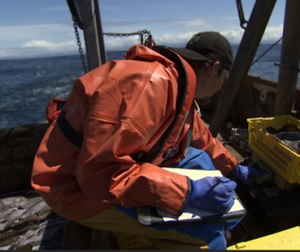
Fisheries across nation seeking monitor waivers
What began in the fisheries of New England has spread across the country. Fishing stakeholders from as far away as the West Coast and Alaska have joined Northeast commercial fishermen in pressuring NOAA Fisheries to extend — and uniformly apply — waivers from having to carry at-sea monitors and other observers on vessels while the COVID-19 pandemic still rages. The Seafood Harvesters of America, an umbrella organization that represents 18 separate fishing groups from Maine to Alaska, wrote to NOAA Fisheries and Department of Commerce officials this week to advance many of the same safety arguments against reinstating observers aboard commercial fishing vessels in the midst of the pandemic. >click to read< 16:30

Northern Right Whales Are on the Brink, and Trump Could Be Their Last Hope
The task of responding will fall to an unlikely champion, President Trump, whose recent appeals for support from Maine lobstermen could clash with the task of saving the right whale. Peter Corkeron, a senior scientist at the New England Aquarium who spent nearly a decade chronicling the gruesome deaths of right whales as the director of the National Oceanic and Atmospheric Association’s research program for large whales, said he feared the listing would have little impact. “Lobstermen certainly recognize the dire circumstance that the right whale species is in right now,” Patrice McCarron, “We’re in this awkward situation where right whales are not doing great, and it’s certainly not the fault of the commercial fisheries.”PEER also filed a complaint last year with the inspector general of the Commerce Department, which oversees NOAA, arguing that federal officials intent on reopening fishing areas have been ignoring their own scientists on climate change as well as other threats to whales. >click to read< 11:37
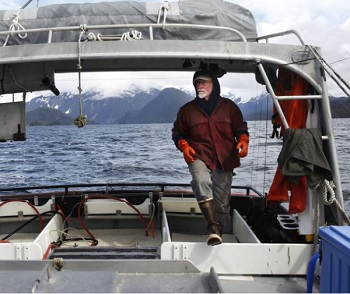
A win for Alaska trollers – Judge denied request for injunction to keep season closed
Magistrate Judge Michelle Peterson, of the US District Court of Western Washington, ruled on Tuesday (6-9-20) that an injunction petition filed by a Washington state environmental organization to protect killer whales circumvents established fisheries law. During oral arguments before her in May (5-28-20), Judge Peterson put hard questions to counsel for the Wild Fish Conservancy about whether the federal court had jurisdiction over the case, when the matter had not been tested before the Alaska Board of Fisheries, or the National Marine Fisheries Service — organizations which have regulated fisheries for the last four decades under the overall umbrella of the Magnuson-Stevens Act. So Judge Peterson’s ruling wasn’t unexpected. Nevertheless Kurt Beardslee, executive director of the Conservancy, says he’s disappointed. >click to read< 08:14

“Prince of Whales” threatens lawsuit against Maine Lobstering Union members
Richard Max Strahan has threatened to sue the Maine Lobstering Union (MLU), the Maine Lobstermen’s Association (MLA) and their individual members for damages under the federal Racketeer Influenced and Corrupt Organizations (RICO) Act. The statement was contained in papers Strahan filed Monday in the U.S. District Court in Bangor in a lawsuit he began last year under the self-styled name “Man Against Xtinction.” Naming the commissioner of the Department of Marine Resources and the assistant administrator of the National Marine Fisheries Service (NMFS) as defendants, the suit asked the court to rule that the decision by NMFS to allow the Maine lobster fishery violates the law governing federal administrative procedures and, consequently, the federal Endangered Species Act. >click to read< 11:40


































